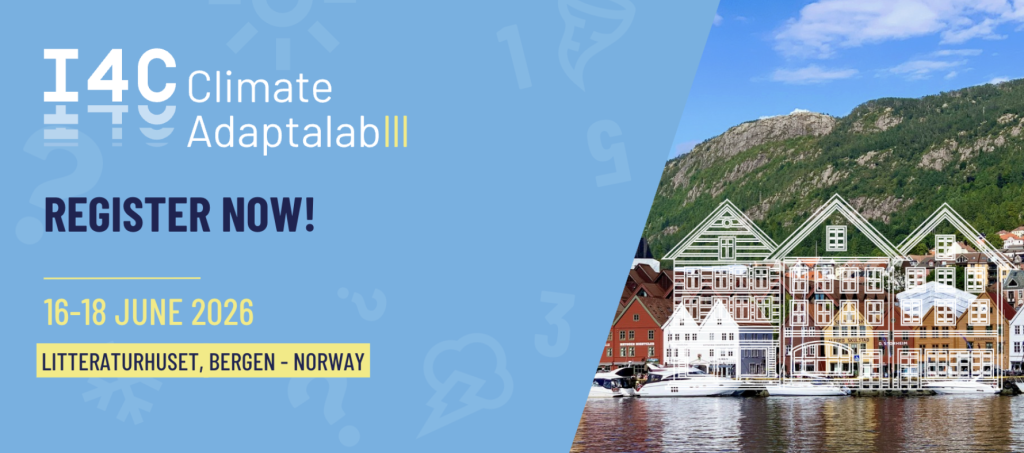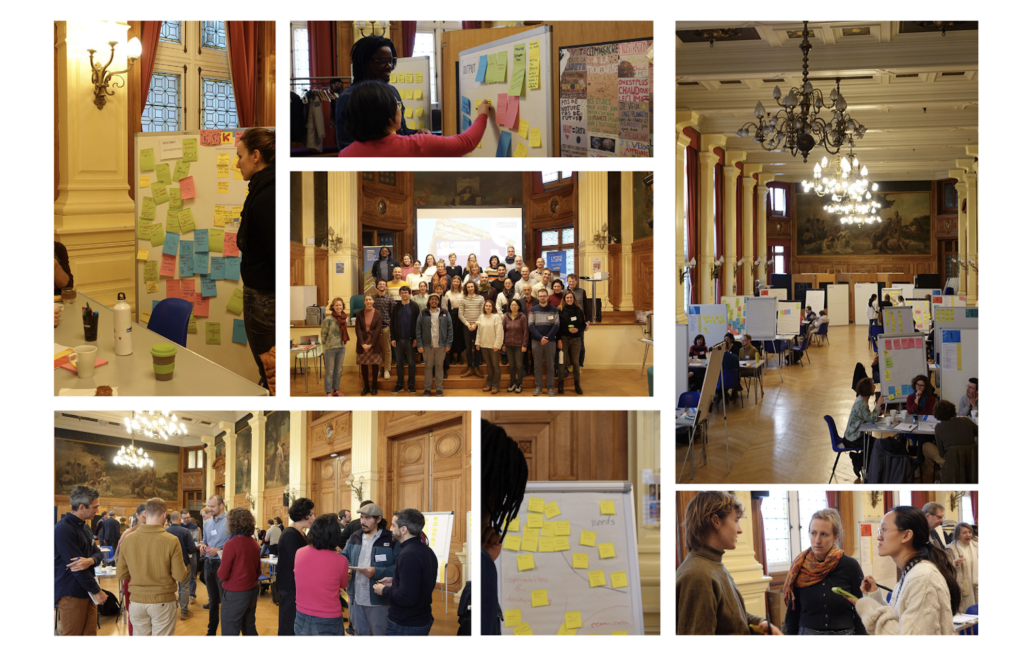More than a workshop: I4C Adaptalabs offer a co-creation space for climate innovation
Adaptalabs are a cornerstone of the Impetus4Change (I4C) project, offering a recurring, interactive space designed to drive real climate adaptation innovation. They bring together scientists, urban planners, and local stakeholders for hands-on, solution-oriented collaboration that goes beyond co-creation and buzzwords. The first edition took place in Paris in 2023, and two more are scheduled over the course of the project.
But what makes Adaptalabs stand out from your typical workshop? Attendees don’t just discuss theories—they roll up their sleeves and co-develop ideas with measurable outcomes, creating tangible results for urban resilience. It’s the unique fusion of expertise, local insight, and actionable climate solutions that come from these high-impact sessions.
Dive into the I4C Adaptalab approach, explore key takeaways from past sessions, and see what’s in store for the next Adaptalab in March 2025.
REGISTER HERE FOR THE 3RD I4C CLIMATE ADAPTALAB IN BERGEN!

The I4C Adaptalab concept
Functioning as a co-creation space, Adaptalab enables participants to work with cutting-edge climate data to devise locally tailored climate solutions. Similar to a hackathon, a significant portion of the event is dedicated to interdisciplinary group work, where participants address specific climate-related challenges.
Each group works intensively to develop ideas or services, culminating in a poster presentation that showcases their solutions. This session not only fosters knowledge-sharing but also provides a forum for networking and the exchange of ideas. The climate services from Adaptalabs are designed to offer practical strategies that cities and regions can use in their adaptation efforts. Ultimately, Adaptalab blends innovation, capacity building, and networking into a hands-on process that supports climate resilience.
You can hear from participants about the unique elements of this type of event by watching the video.
Snapshots from Adaptalab #1 in Paris
At the first Adaptalab, 29 November – 1 December 2023, we were at the early stages of the I4C project, aiming to generate ideas for climate services in the participating cities while also sparking collaborations between researchers and stakeholders. Over 3 days, attendees immersed themselves in understanding the objectives of the I4C project and the specific climate challenges of the participating cities of Bergen, Prague, Paris, Barcelona, Newcastle, and Hamburg.
Through the hackathon-inspired format, interdisciplinary groups developed innovative ideas for new climate services, grounded in insights from the presentations in the initial session. The solutions included test-beds for emergency services, a gathering space for understanding and innovating around climate change, an interactive portal to integrate climate and decision-making tools, and local digital tools to empower individuals in their own climate-related decision-making.
The first Adaptalab not only highlighted the importance of co-design in developing impactful climate services but also set the stage for future events focused on co-development and co-evaluation. At this early stage, the framework around Adaptalab was kept broad, as the project was still in its infancy and the climate scientists had yet to produce new data.
Check the final report from the 1st Adaptalab

Paris 2023
Looking back on Adaptalab #2
Since Paris, I4C researchers had developed new data sets, and we were eager to see how these could influence climate services in the project’s participating cities. These data sets included different climate indicators, and we also began to see results from an exciting emulator data set. The scientists, experts in climate data, shared their knowledge of other data sources within the groups they were part of. With this new data, Adaptalab #2 was able to take a more focused approach, enabling the development of ideas that truly impacted the different cities involved. This time, the groups started with a clearer focus.
Participants chose from specific themes, ensuring they engaged with ideas relevant to their expertise and needs, areas where they could both contribute knowledge and explore new solutions. These themes also opened up opportunities to use the new I4C climate data to create new projects and develop climate services.
The themes were:
- Flood risk and coastal protection
- Climate risk communication and training
- Drought management
- Disaster preparedness and emergency response
By focusing on these specialised themes, we aimed to justify the participation of stakeholders who traveled from other cities to Barcelona in March. For example, if someone had been developing a climate risk training program in Bergen, they could share ideas and strategies with colleagues from other European cities who had similar goals. While the climates differed, the processes were often strikingly similar. Urban climate adaptation has offered valuable learning opportunities across cities in different countries.
Don’t miss out
The next I4C Adaptalab will take place in Bergen, Norway, from 16-18 June 2026. We will prioritise sustainability, working with local providers for food and exploring ways to mitigate carbon emissions, such as carbon quotas for flights.
This event will bring together researchers and stakeholders to share ideas, experiences, and innovations using new climate data to co-create focused climate services. Travel stipends are available for stakeholders from participating I4C cities. For more information about travel stipends, please contact your I4C contact person or Megan (mesi@norceresearch.no).
If you have questions about the Adaptalab concept, feel free to contact Mathew (mathew@villagegreen.no).
Mathew Stiller-Reeve, Alexandra Singer, and Francesca Lazzarini
